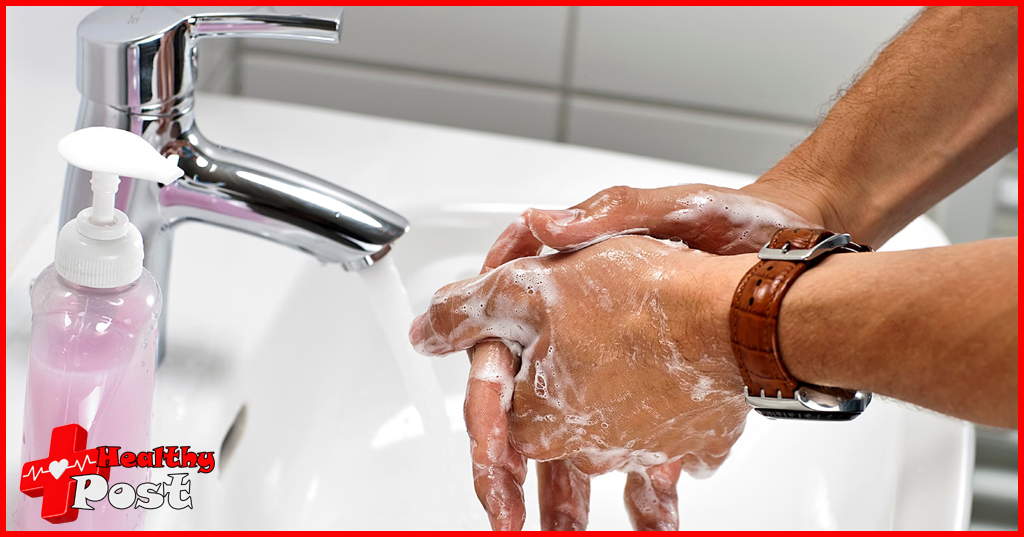
Are you overdoing it with hygiene? How to properly care for your body not only in summer
“Wash your hands, change your socks and blow your nose into a tissue.” We all know them, but let’s face it – how often do we forget the basic rules of good hygiene? They haven’t changed much, only our daily body care has been enriched by novelties, e.g. disinfectant gels or hand dryers. How is it with them and hygiene? And why is it better to wear long pants on public transport?

Can’t make it? Read the main points of the article:
- Don’t put your hands in your face in public places. Use a paper towel to dry your hands in a public toilet. Hand dryers only fan the air full of viruses and bacteria. Read the labels on disinfectants. They should not contain triclosan or parabens. The alcohol content should range from 60 to 95%.
- Let’s learn to sneeze and cough into your elbow – this way less bacteria and viruses spread.
- There is no need for different gels and showers for women’s intimate hygiene. The vagina has self-cleaning abilities and multiple interventions can harm it.
- Neglect of hygiene or excessive care can endanger our health.
Hygiene on the go
Traveling, especially in airplanes and public transport, brings an increased risk of contact with bacteria, viruses or parasites. While driving, remember not to touch your face with your hands.
It would be ideal to use tissues or gloves when you have to touch the handles. If we do not want to be this strict, it is advisable to always use hand sanitizer after exiting the means of transport .
We usually deal with hand hygiene, however , we do not wear short shorts or skirts on the means of transport , because of which our skin can come into contact with the seat. In particular, there is a higher risk of transmitting parasites, such as scabies, with fabric seats.
When traveling by plane, we also need to touch surfaces as little as possible and disinfect our hands regularly. The cabin environment is ideal for the spread of microbes.
Soap or rather a disinfectant gel?
Washing your hands with soap and water is still the most effective way to remove bacteria and viruses. Hand washing should be regular, especially after visiting the toilet, before eating, after returning from outside or after contact with public surfaces.
It is important to wash your hands for at least 20 seconds , use warm water and a sufficient amount of soap. We make sure to wash all parts of the hands – the backs and between the fingers are often forgotten.
If you wash your hands in a public place, use a paper towel to dry them. Ideally we should have it on hand to close the tap or open the door to avoid contact with a potentially contaminated surface. The popular “hair dryer” hand dryers are not very suitable – the air flow can carry bacteria and viruses to the hands that we have just washed.
Which disinfectant gel or spray to choose?
In contrast, disinfectant gels and sprays do not remove dirt, but kill viruses and bacteria. We use them when water and soap are not available. The disinfectant should ideally be alcohol-based. Apply enough to cover all surfaces of hands and rub hands until dry.
Gels and sprays should not completely replace washing with soap . Excessive use of disinfectants can dry out the skin, which then leads to irritation or allergic reactions. Children, people with sensitive skin, eczema sufferers and allergy sufferers are particularly sensitive to irritation.
When choosing disinfectants, pay attention to their composition. I recommend products with an alcohol content between 60-95%. Alcohol is effective against a wide range of microorganisms. On the contrary, avoid products that contain triclosan or parabens . They can be harmful to health and the environment.
Intimate hygiene: Common myths that are harmful
Intimate hygiene is important for the health of the genitals. However, there are many myths and misconceptions that many women use to take care of themselves:
- I must have a product for intimate hygiene: A mild unscented soap or clean water is completely sufficient for care. Antibacterial soaps, on the other hand, can destroy the beneficial bacteria that protect the intimate area, which can lead to infections.
- Tampons are more hygienic than pads or cups: It really depends on the correct use. In particular, regular replacement and proper hand hygiene when handling intimate accessories is essential. In short, it depends on personal preferences.
- I feel unclean without a vaginal douche: Vaginal douches can disturb the natural bacterial balance in the vagina and thus increase the risk of infections. The vagina has self-cleaning capabilities, so there is no need to rinse it. We only wash the vulva.
- I always have to shave: Shaving or waxing the private parts is a matter of personal preference and not necessary to maintain hygiene. Conversely, shaving can lead to skin irritation and ingrown hairs.
- Infection again! I have white discharge: White discharge is often normal and can vary throughout the menstrual cycle. But if it is accompanied by an unpleasant smell, itching or burning, it may be an infection and it is advisable to see a doctor.
When hygiene is too much
Our health is harmed by not washing our hands enough, wearing dirty or sweaty clothes or neglecting to take care of our feet. We shouldn’t even share razors, towels or toothbrushes . However, we also encounter the opposite extreme, when the body is so purified that it loses its natural protection. What to watch out for?
- Washing too often: Excessive washing (especially with the use of soaps and detergents) can break down the skin’s natural protective barrier and lead to dry, irritated skin. Wash regularly, but not excessively. Let’s use mild soaps and moisturizing creams.
- Using too hot water: Hot water can strip the skin of its natural oils, leading to dryness and irritation. Let’s use warm, not hot, water when washing hands and the whole body.
- Excessive use of antibacterial soaps and disinfectants: Excessive use of antibacterial soaps can lead to bacterial resistance and disruption of the skin’s natural microflora. Let’s use antibacterial soaps and disinfectants sparingly and only when really necessary.


One thought on “Are you overdoing it with hygiene? How to properly care for your body not only in summer”